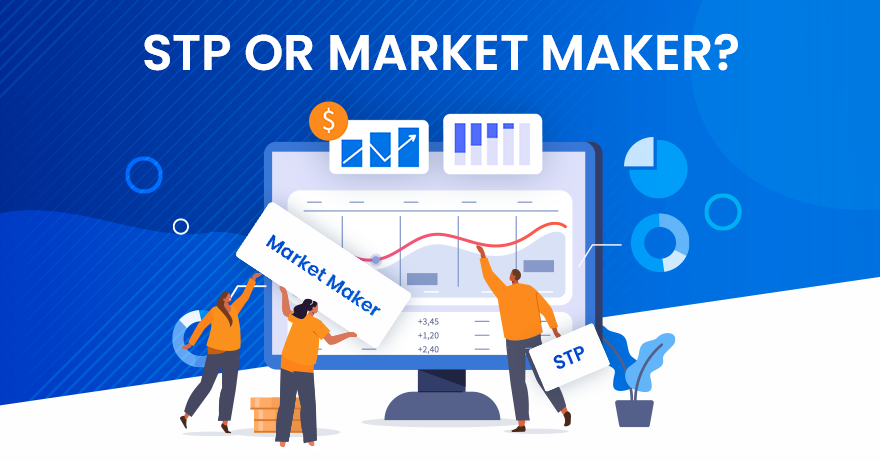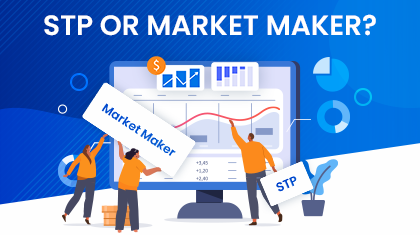
Big Brokers Don’t Outsource to 3rd Party Tech Providers?
October 4, 2021
How “Sticky” is Your Brokerage’s User Experience?
October 20, 2021
One of the first decisions new brokers have to make is on what type of business model they plan to operate. This broadly comes down to the following question. Do they intend to be a market maker (b-book)? Or do they intend to run an STP (straight through processing) a-book business model?
It is such a fundamental question because the decision has implications for many other areas of the business. For instance, choices such as where to incorporate, where to seek regulation, and even what technologies will be required, are contingent on the above issue.
A-book
A-book simply means that the broker acts as an intermediary, passing client trades from their platform to their liquidity providers. In this business model, the broker’s interests are said to be aligned with their traders because they gain nothing from client losses, but are remunerated on the volumes their clients generate.
This model is also generally cheaper to gain regulation for, and as such allows new brokers to petition for regulation in more reputable jurisdictions than they would otherwise be able to when attempting to gain regulation for a b-book business.
A-book brokers also don’t require the same kind of client segmentation systems that b-book brokers do. However, what they may lack in the above department they more than make up for in liquidity aggregation and order routing systems, enabling them to trade with multiple liquidity providers and offer that liquidity to their clients.
B-Book
In a b-book business model, the brokerage in question takes all the risk of client orders upon itself, in other words, making the market. This means that client wins are paid out from company money, but it means that client losses are also effectively company money. In such a business model the broker’s interests are not aligned with traders.
This requires the brokerage to invest in software to detect and prevent abusive trading strategies that could be hurting its bottom line. It also has to invest in state-of-the-art risk management software to empower its dealing department to maximise profits and reduce losses.
Market making regulatory licences are far costlier to attain if you want to run such an operation in a non-off-shore jurisdiction. For obvious reasons, these regulators impose larger capitalisation requirements on market makers than on STP brokers. Depending on your jurisdiction of choice, these can run to as much as $1 million.
C-Book?
Brokers have learned that there’s much to be gained from operating both business models in different jurisdictions. Usually, this involves different versions of the homepage for different regions, variations in available leverage ratios, and sometimes even different asset class offerings.
Often brokers will opt to start off in an affordable off-shore jurisdiction that allows them to maximise growth. When they have developed a solid brand, they may then seek to open an STP arm in a more reputable jurisdiction.
Over the years, some brokers have developed “hybrid” models, sometimes referred to as C-book. These involve some hedging activity with an LP, but also groups of traders that are kept on the broker’s book. As you might imagine, the technological requirements of such a hybrid model can be significant, essentially amounting to a combination of both a-book and b-book requirements.
Our View
Picking up the brokerage business model is a matter of preference, but start-up brokers need to know the target audience and understand the main advantages and disadvantages of each model and choose an appropriate way of starting the business.
At Panda, we’re agnostic to markets or business models. We don’t favour one method of execution or brokerage style over another. We see the process of setting up a successful brokerage as a series of challenges that we have developed different solutions for over the years. Speak with one of our qualified success managers to weigh up your options and pick the best solution for your company.
For free consultation
Request a Call
